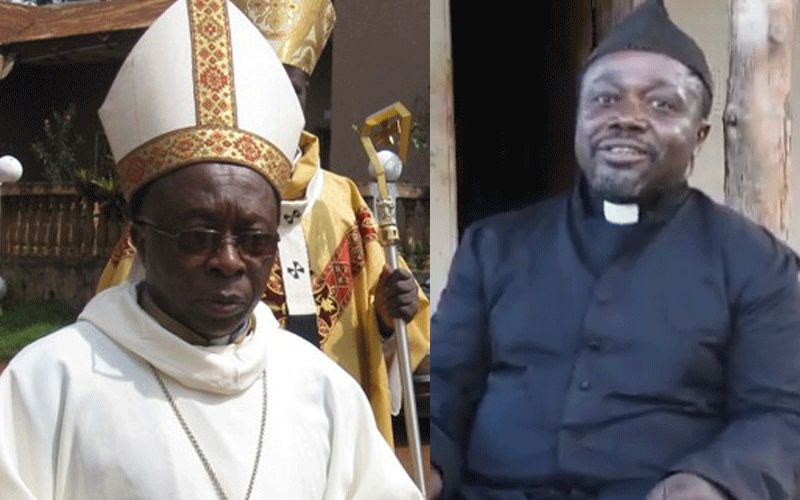“Even the vast task of inculturation has not yet managed to reconcile what we have become (Christian) with its historical heritage and what we are (our culture and traditions) with all the duties that fall to us as sons of our people,” Fr. Prosky, a former student of Fr. Andre added.
For Moise Takougang, “Bishop Watio holds a doctorate in comparative history of Religions, and Fr. André holds a doctorate in Anthropology.”
“It would have been better for the Bishop to invite Fr. André to a discussion in which each one of them would bring arguments for and against the controversy than to throw out a sanction more akin to a lynching,” Mr. Takougang, a Catholic based in Cameroon’s Bafoussam Diocese, suggested in the July 8 interview with ACI Africa.
According to Nkemsse Klovisse, “What is reproached of Fr. André Marie Kengne is not the fact of promoting inculturation, but simply the fact of having made public the fruit of his research and personal initiatives in this delicate field of inculturation as a Priest, without having first submitted them to the competent commission for examination and evaluation.”
“The misfortune of a video like that of Fr. André Marie Kengne is that it can sow confusion in the minds of Christ's faithful, who will not be able to distinguish between the reflections and opinions of a researcher (theologian and anthropologist) and the pastoral orientations of the Church (carried by the Priest that he is),” Mr. Klovisse, a Catholic journalist at Radio Ecclesia in Bafoussam told ACI Africa July 8.
(Story continues below)
He added, “Looking at the video, it is also not obvious for the majority of the faithful to distinguish between the personal convictions of Fr. André Marie Kengne on certain realities (such as initiation in secret societies) and the teaching of the Church.”
Meanwhile, Fr. Clément Kouamo, a Priest colleague of Fr. André in the Diocese of Bafoussam has been quoted as saying that their Bishop’s decision to suspense Fr. André is consistent with “the doctrine of the Church”
“He must give priority to the official teaching of the Church,” Fr Clément has been quoted as saying in reference to the Bishop and added, “Above all, he must not give free rein to all forms of religious syncretism between Christianity and traditional cults,”
In a Facebook Post, Cameroonian Jesuit Priest, Fr. Ludovic Lado shared, “I salute the interest, even the passion, of this priest for traditional African cultures, but I also recognize the bishop's right to redirect a priest when he feels that an outing may have created confusion in the minds of some of the faithful.”
For Fr. Ludovic, even though the Bishop’s decision to suspend Fr. André “has the merit of safeguarding pastoral activity, the form was not there.”
“I was expecting an episcopal text put together by a theological or catechetical commission, as the Vatican knows how to do, that would dismantle, with supporting arguments, the doctrinal errors detected in Fr. Andre’s post,” the Jesuit anthropologist posted.
“I reiterate my wish that Fr. André be encouraged to continue his research, but with the prudence required by the passage from the intellectual moment to the media moment, passing through catechism,” Fr. Ludovic advised in his Facebook post.
Jude Atemanke is a Cameroonian journalist with a passion for Catholic Church communication. He holds a Bachelor’s Degree in Journalism and Mass Communication from the University of Buea in Cameroon. Currently, Jude serves as a journalist for ACI Africa.








